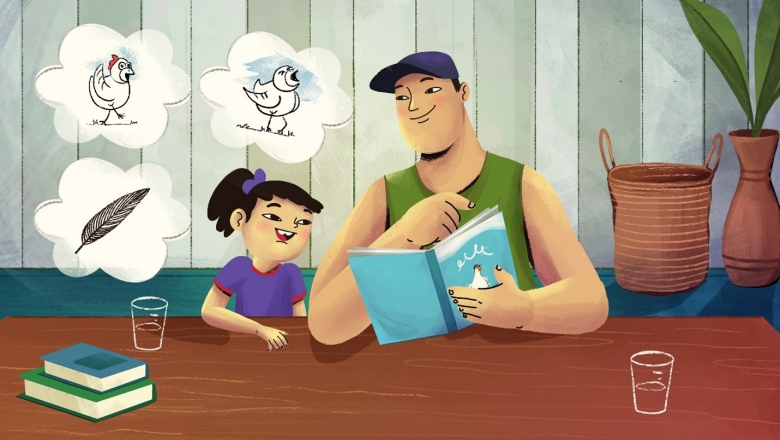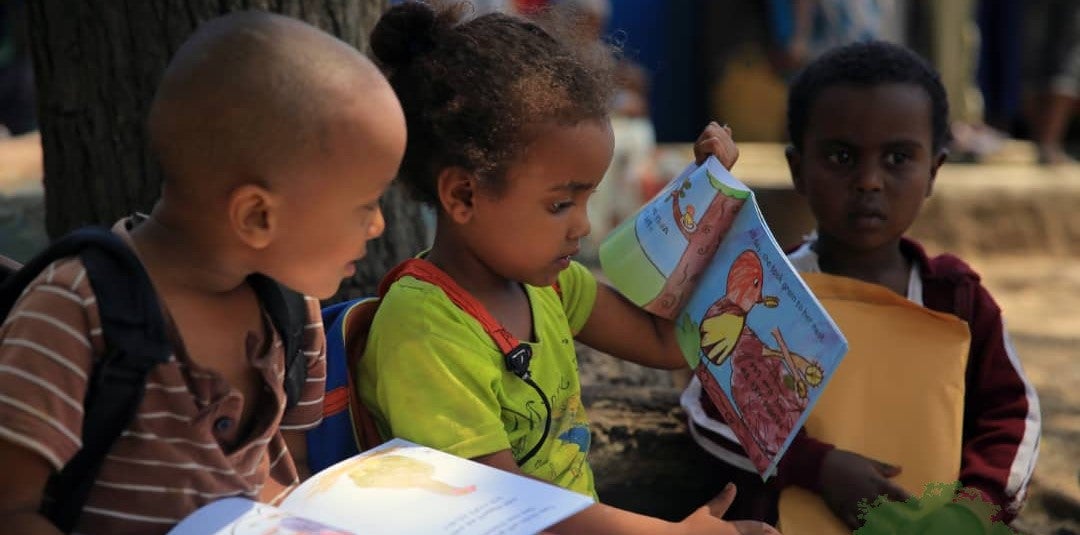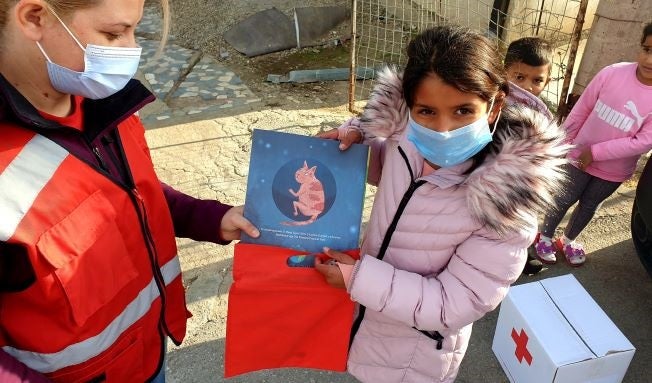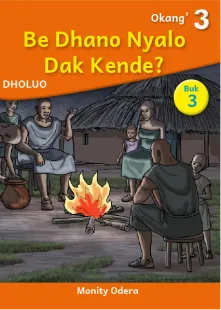Why Reading with Children Matters
Becoming a reader is a complex process which requires lots of support and practice. Activities like talking to children, asking them questions, telling them stories and rhymes, and reading to them all form the foundations for children’s language development. Even after children start school and are taught the mechanics of reading, the process continues as children master more complex reading skills and move from learning to read to using reading as a tool to learn. Children need varied books (including picture books, non-fiction books, and textbooks), support and encouragement from their parents and caregivers, effective literacy instruction in school, and regular opportunities to read.
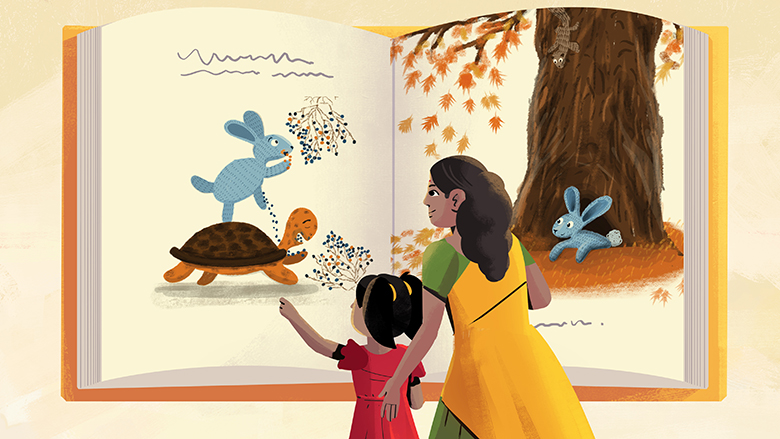
The Issue
Unfortunately, too many children are growing up without books. Only 2 percent of children under the age of five in sub-Saharan Africa are growing up with three or more children’s books in their homes. Parents and caregivers with low literacy levels may not be aware of how they can support their children’s learning with reading activities. In some languages, there are few (or no) books available, which means children can’t practice reading in a language they know. Even where books are available, they are often costly, making it prohibitively expensive for families. In some countries where textbooks are purchased by the education system, challenges with procurement and distribution can result in low-quality, high-cost books which don’t arrive in school on time (or at all).
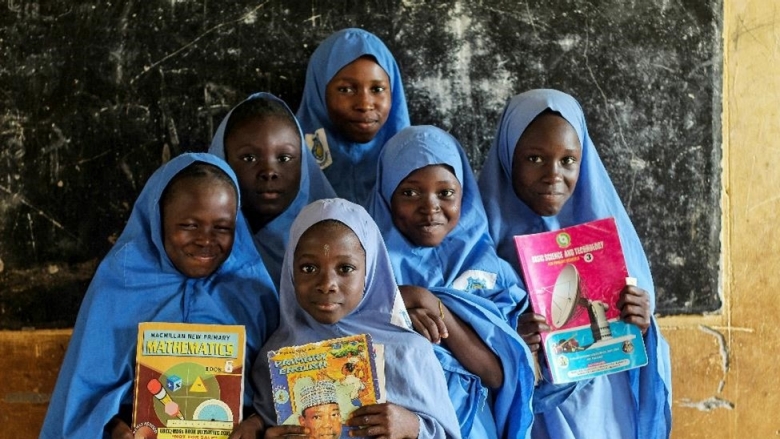
These issues have lifelong consequences: seventy percent of children in low- and middle-income countries are unable to read and understand an age-appropriate passage by their tenth birthday (a situation we call learning poverty). Learning poverty wastes young peoples’ potential, impacts future workforces and ultimately, erodes countries’ economic competitiveness.
Read@Home Initiative
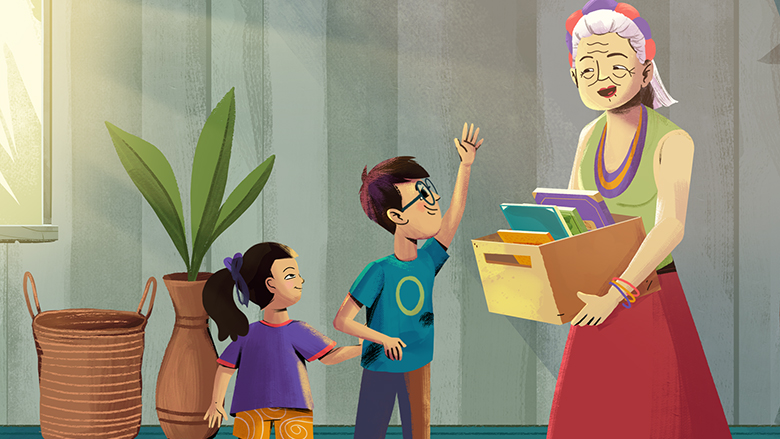
- In Senegal, for example, Read@Home is supporting the government to distribute books in Arabic, French, and seven Senegalese languages alongside support for parents and caregivers to reach over 2 million children aged zero to six (covering 50 percent of children below the age of six across the country).
- In North Macedonia, Read@Home supported government efforts to boost children’s reading assessment scores in the early grades, reaching the poorest 10 percent of families with storybooks and activities to encourage reading at home.
- Read@Home launched the Early Learning Resource Network to enable governments and partners to find and use open licensed books and instructional materials in multiple languages, and provide tools and guidance to support every stage of the book development and distribution process.
The initiative targets families with children ages 3-12 who are unlikely to have access to books or other remote learning approaches.
Read@Home supports countries and teams with just-in-time technical assistance to complement country efforts to: (i) source, select, and procure quality reading and learning materials for children in appropriate languages and accompanying materials for parents and caregivers; and (ii) improve efficiency and reduce costs in book procurement and distribution.
The team has produced a range of global public goods, including:
- A Global Manual to help countries identify high quality reading materials for use in homes, along with supporting materials for parents and caregivers, including monitoring and evaluation guidance and tools.
- Guidance Note: Using the World Bank Bidding Document for Books to support government and World Bank teams in preparing accurate and complete bidding documents for books, evaluating proposals, and awarding contracts.
- Guidance Note: Technical Specifications for the Design of Reading Books to ensure that correct fonts, spacing, and other design elements are optimized for young readers when developing new reading books.
- Guidance Note: Technical Specifications for the Production of Textbooks and Reading Books to provide complete and correct technical specifications for the procurement of 14 kinds of books frequently procured for education and used in classrooms, homes, and libraries.
- Copyright Guide to provide explanations of copyright for educational materials to assist governments and partners in procuring and using copyrighted textbooks and storybooks correctly and efficiently.
- Guide to Open Licensing in World Bank Projects to provide an explanation of open licensing and how to use it in World Bank and other development projects to increase access to high quality teaching and learning materials, including textbooks and storybooks (forthcoming).
- Guidance Note: Developing High Quality Books for Reading Programs and Children’s Reading at Home to provide support for title development work in underserved languages, including information about the range of genres needed to develop reading skills and motivation and guidance for authors, illustrators, and editors in the production of these diverse types of children’s books.
- Read@Home Guide to Incoterms and Insurance to provide practical explanations of the range of Incoterms (terms that govern the responsibilities of buyers and sellers using international shipping) for book procurement and the related insurance requirements.
- Ten Success Factors in the Procurement of Teaching and Learning Materials: The Case of Mozambique to present replicable measures used in Mozambique to increase the efficiency of book procurement and reduce the costs of textbooks and teacher’s guides. The document sets out ten success factors which can be used by other countries.
- Book Supply Chain Analysis in the Republic of the Marshall Islands to analyze the steps in the book supply chain in the RMI and identifies strategy to ensure timely access to quality and affordable reading materials.
The Read@Home team is working with partners at country and global levels, including the Global Book Alliance, USAID, UNICEF and various NGOs. The program is supported by funding from the Global Partnership for Education (GPE), The REACH Trust Fund, the Early Learning Partnership, and country project grants.
